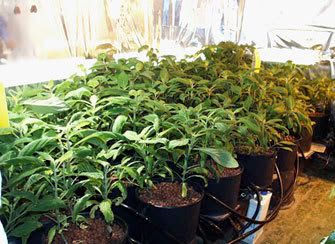If you enjoy gardening, but have limiting factors such as very little gardening space, problems with pests or unsuitable weather conditions, then hydroponics could be the answer for you. For many people, the thought of successfully gardening indoors all year around has only been a dream. However, with hydroponics this is possible.

General hydroponics is a hobby many people are picking up today. Hydroponics is simpler than what most people think, and is proven to have several advantages over regular soil gardening. The following are some of the many benefits of growing plants using hydroponics:
Less space is required, and plants can be grown closer together. Growing plants with hydroponics is possible almost anywhere.
Less water is required as there is no soil which soaks it up before it reaches your plant’s roots. Hydroponics is great in areas where there are water restrictions, as less water is lost to evaporation. When you water your regular garden plants, approximately 10% of the water actually makes it to the plants.
No pests or diseases. You don't have to worry about pest control, and because your plants are grown indoors, there are fewer problems with diseases such as mould and fungi.
Reduced maintenance time. Once your hydroponics system is set up, all you need to do is change the nutrient solution on a regular basis. This only takes a few minutes. There is no need for any weeding.
Types of plants grown with hydroponics:
Nearly all plants can be grown using hydroponics. The most common are vegetables such as tomatoes, lettuce, cucumbers, and peppers. Other plants include flowers and herbs.
Although hydroponics is possible for most plant species, a limiting factor is the amount of physical support required. If you are growing climbing plants, you will need to provide them with extra support.
Hydroponics supplies:
Hydroponics gardening supplies can be found at most good gardening stores nowadays. Before visiting your local store, it is a good idea to do some research online first, so you know what you need. You can also purchase supplies online.
Your grow lights are one of the most important factors for hydroponics gardening. Hydroponics stores sell individual parts as well as complete growing systems. These will include the hydroponics and lighting systems, fans, and timers, etc.
In conclusion, a hydroponics system will initially take a bit of time and effort to set up, but in the end it will be well worth it.
By Susan Fielding












